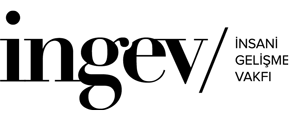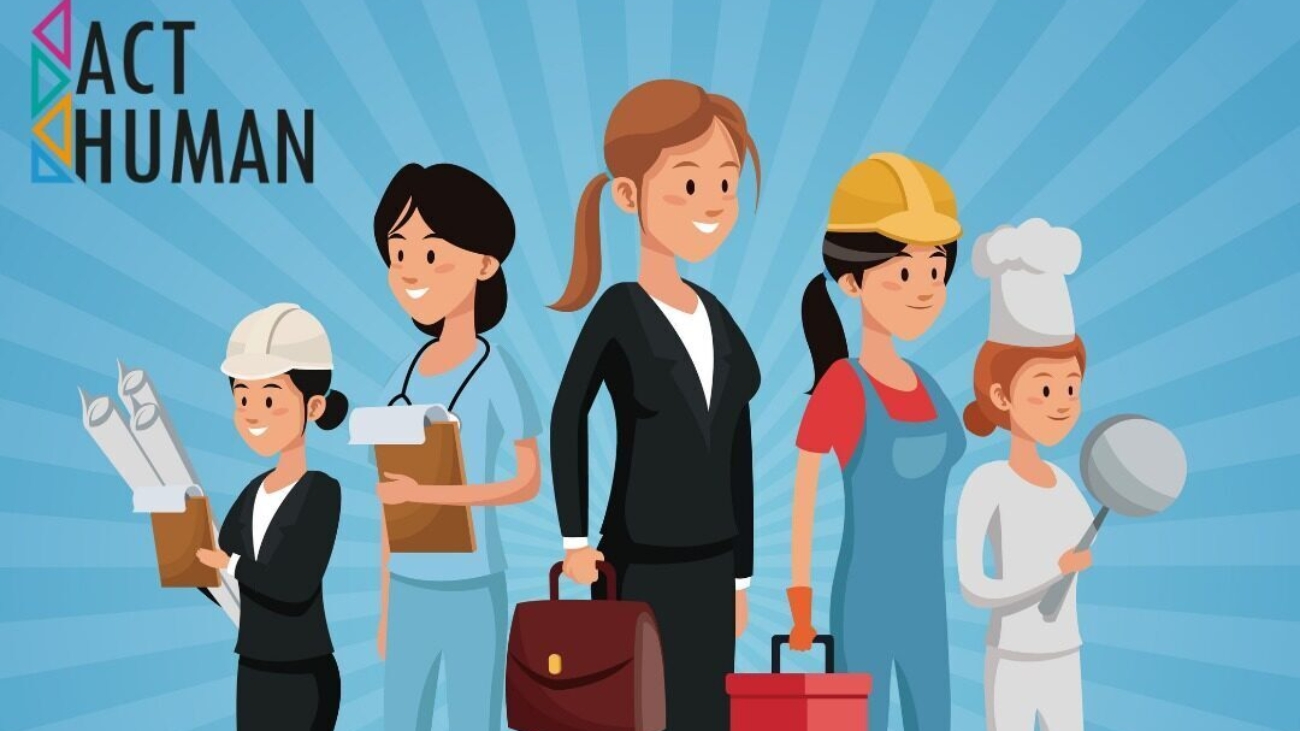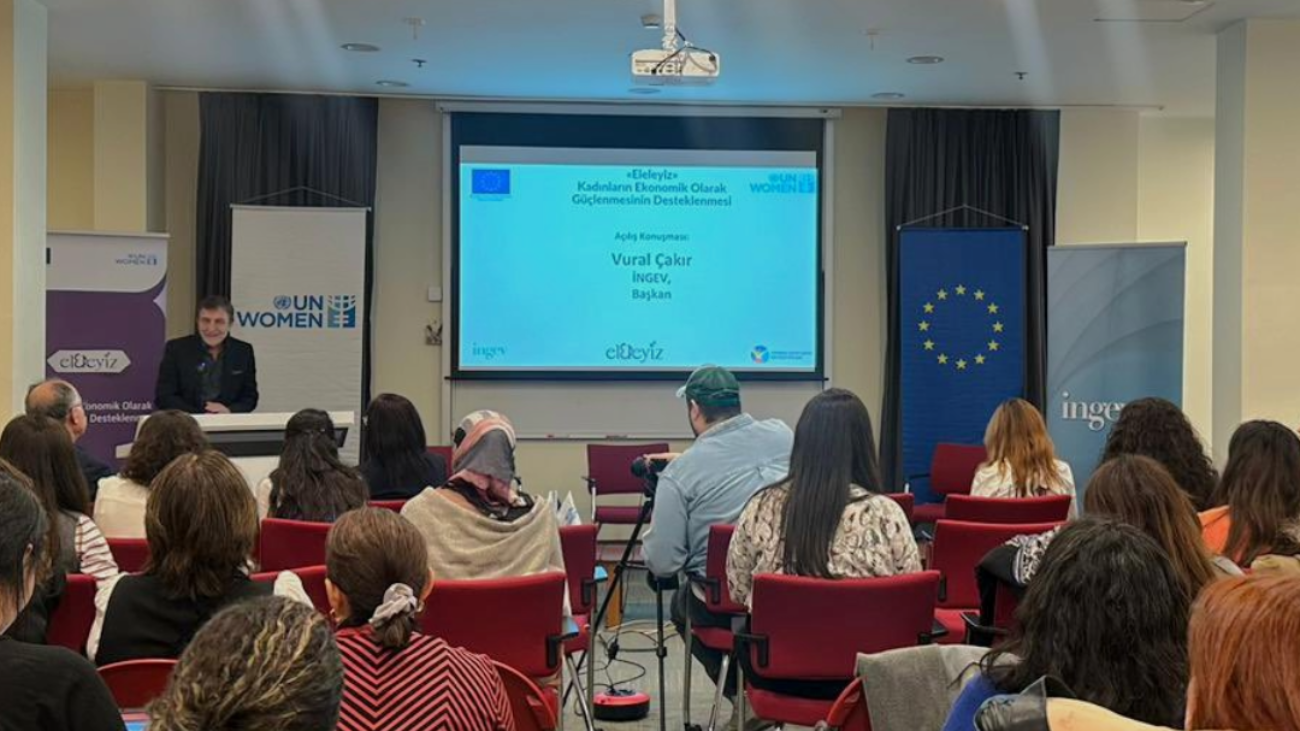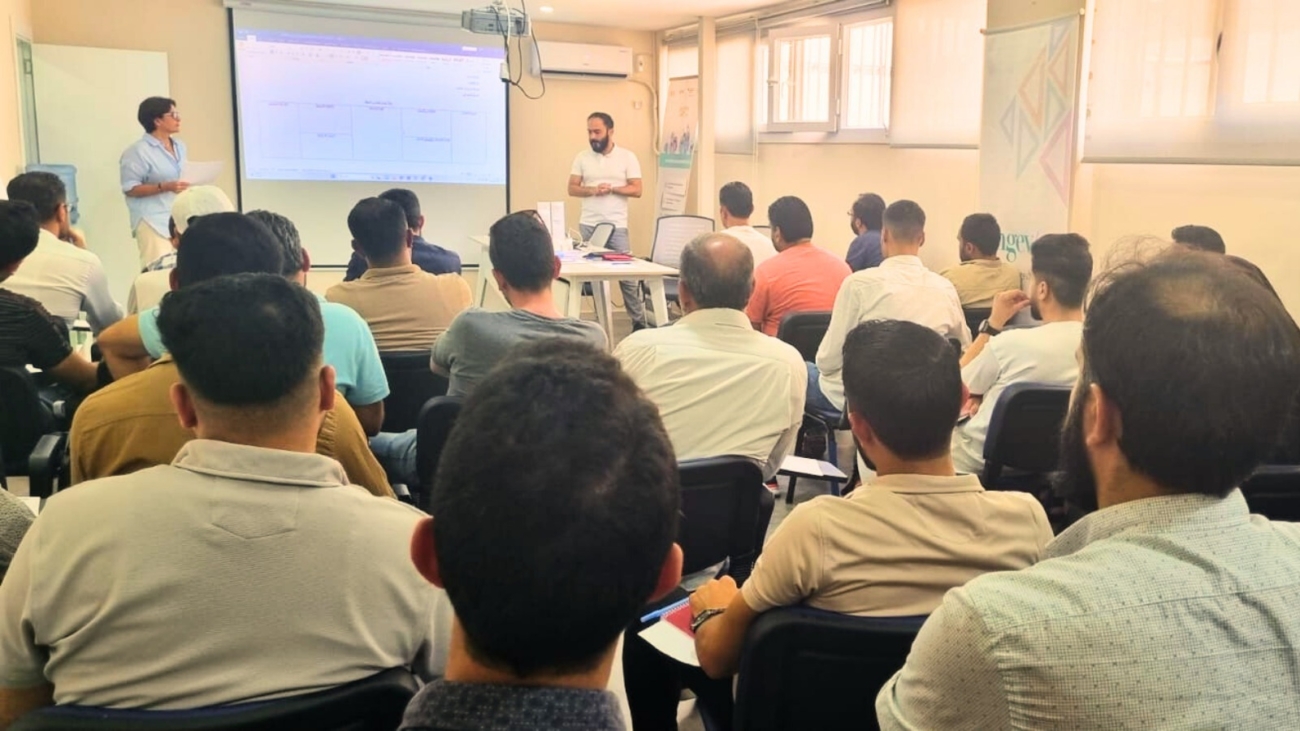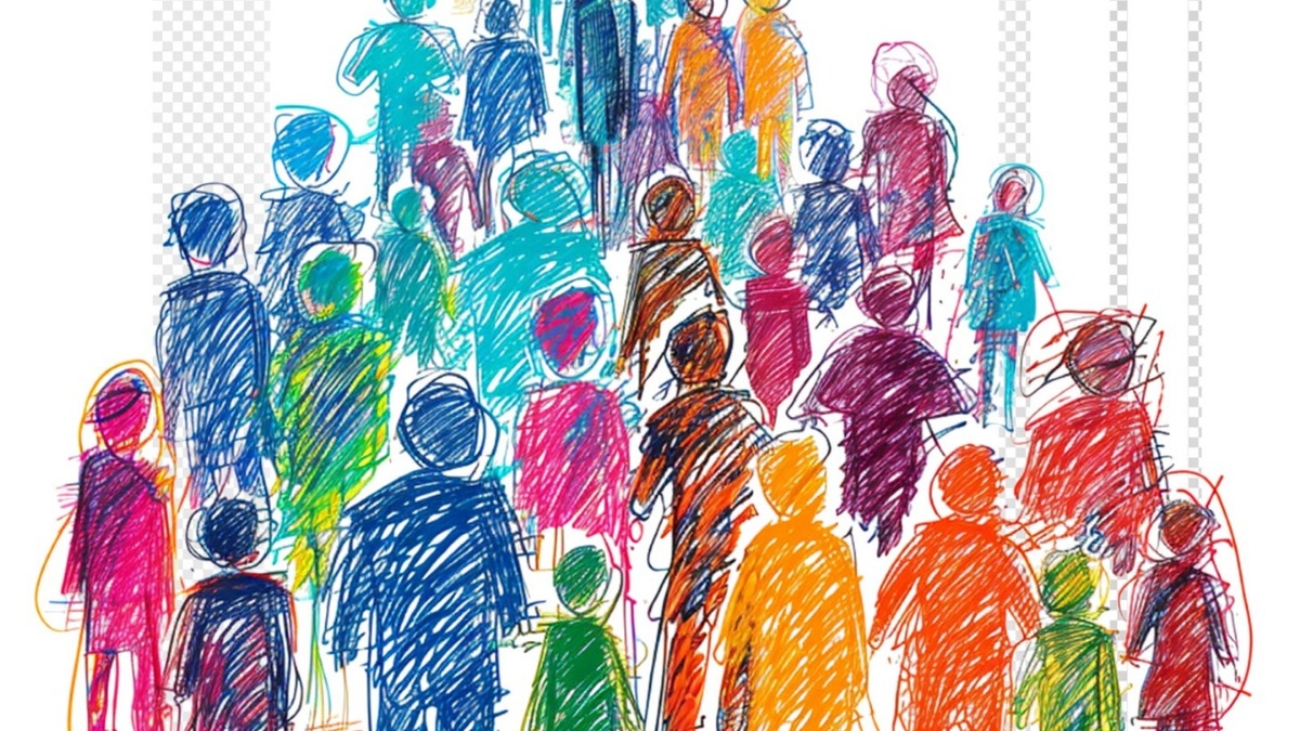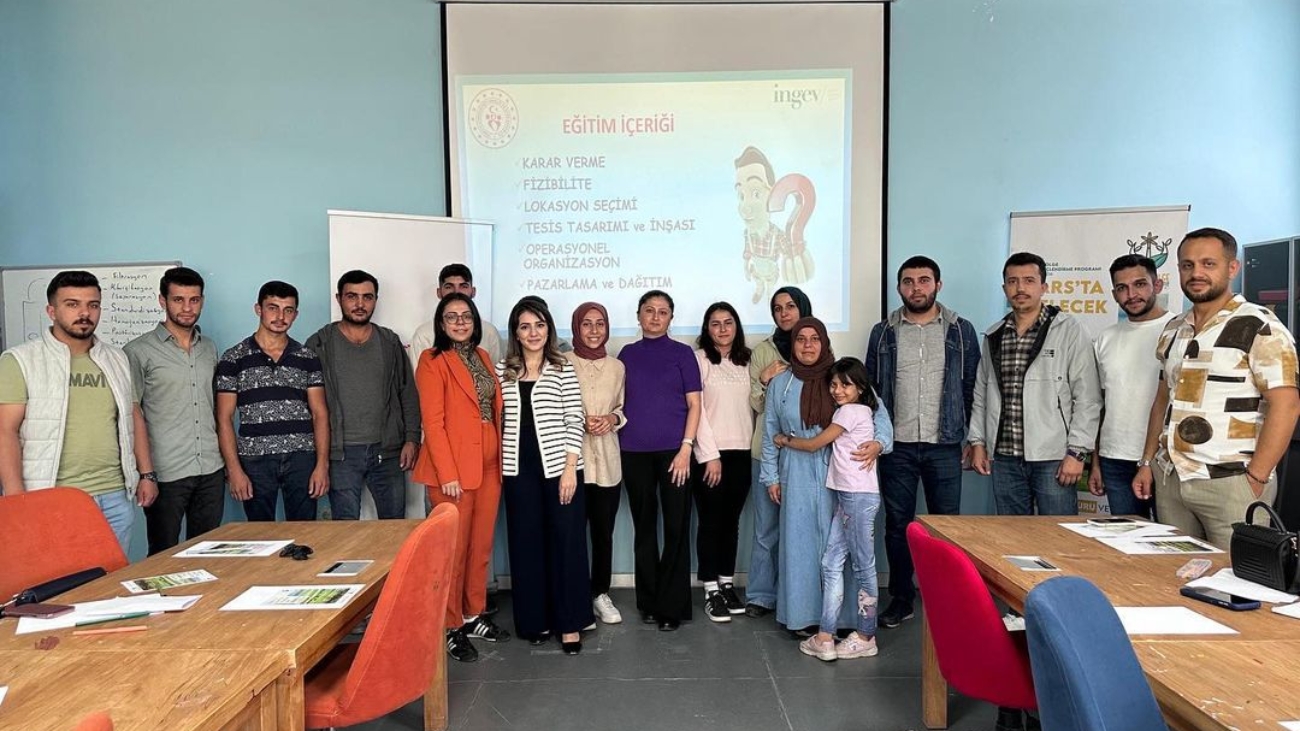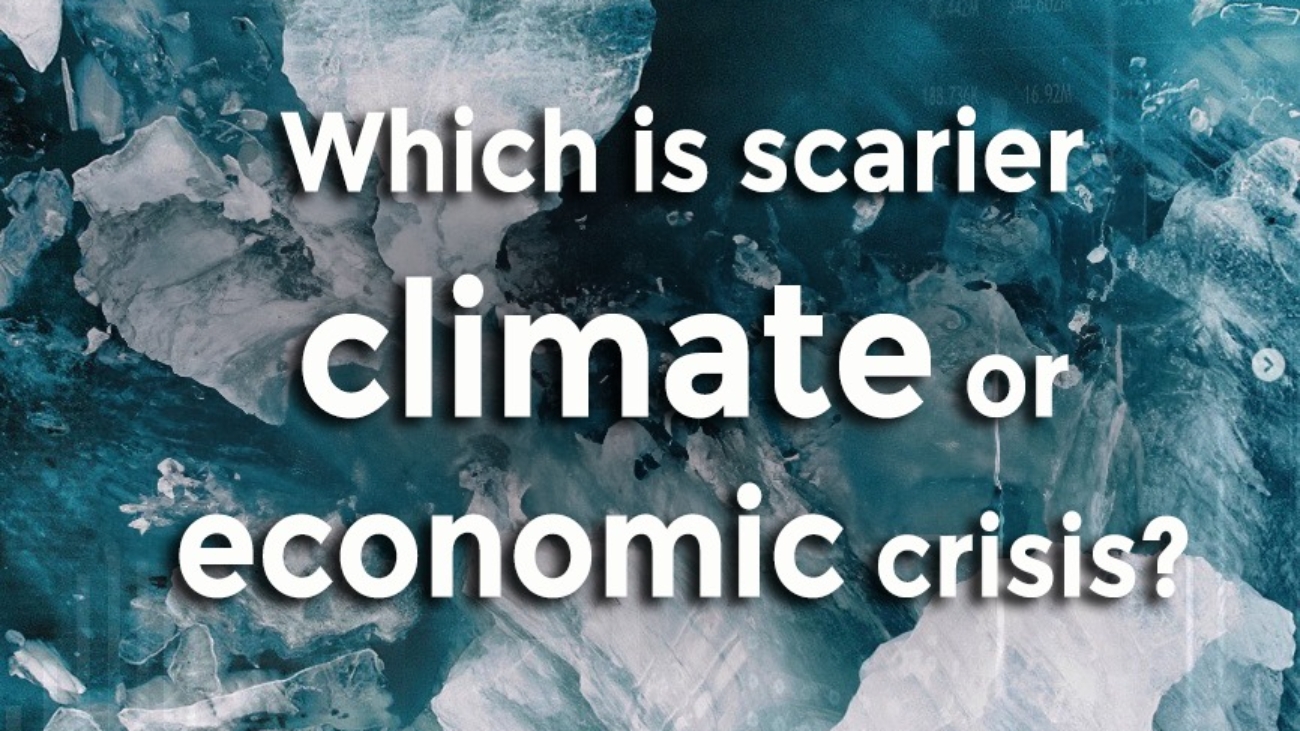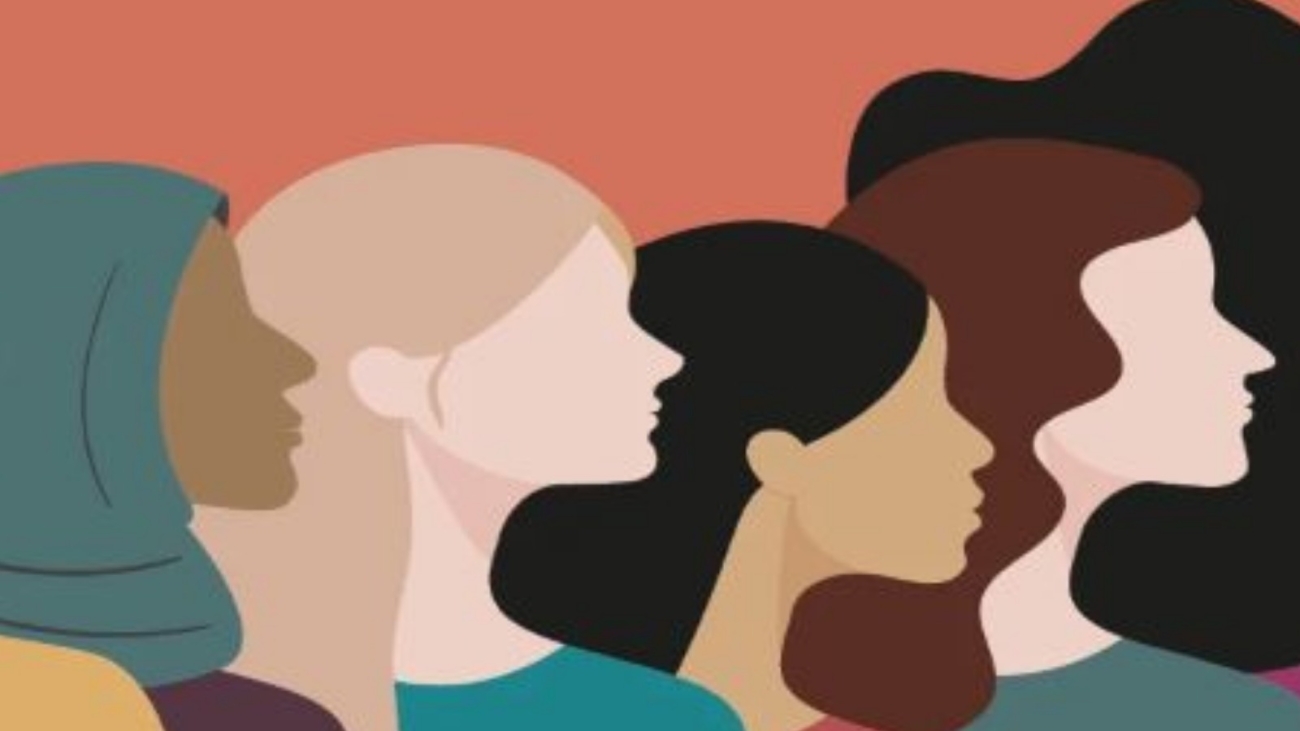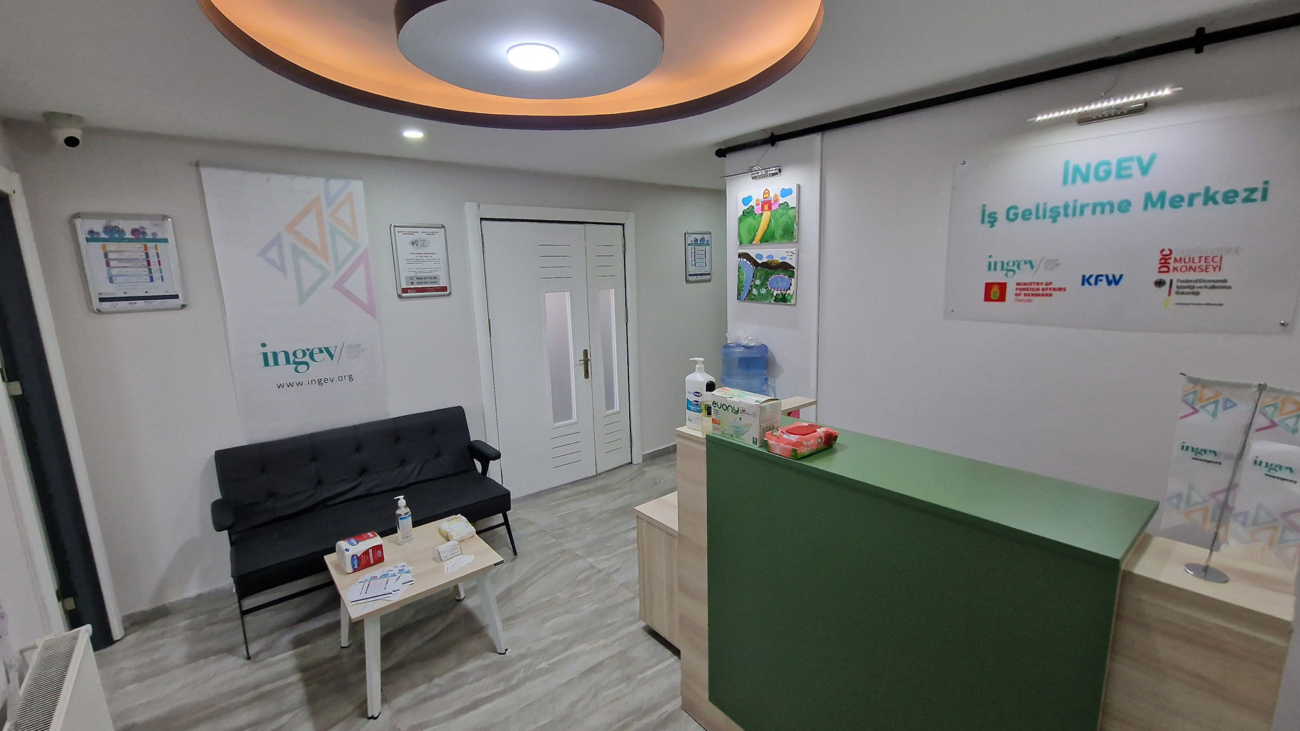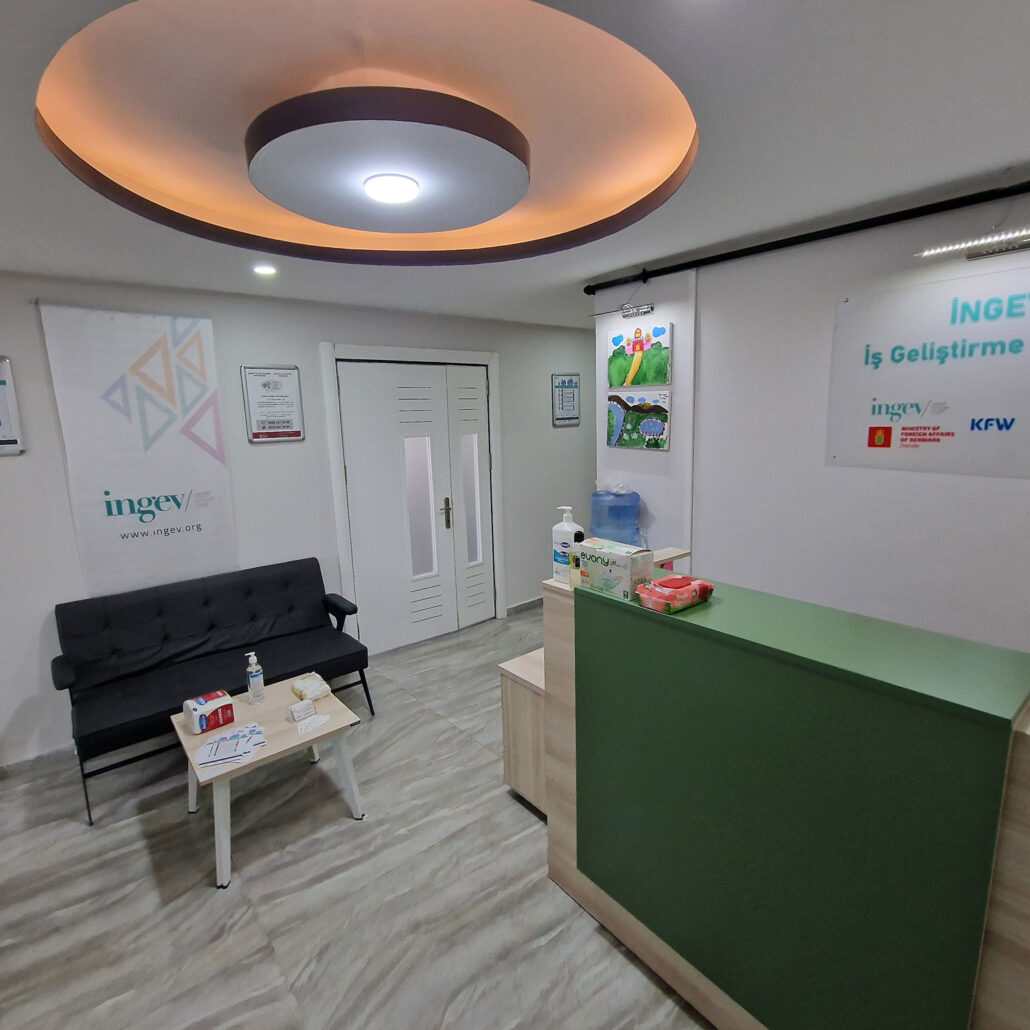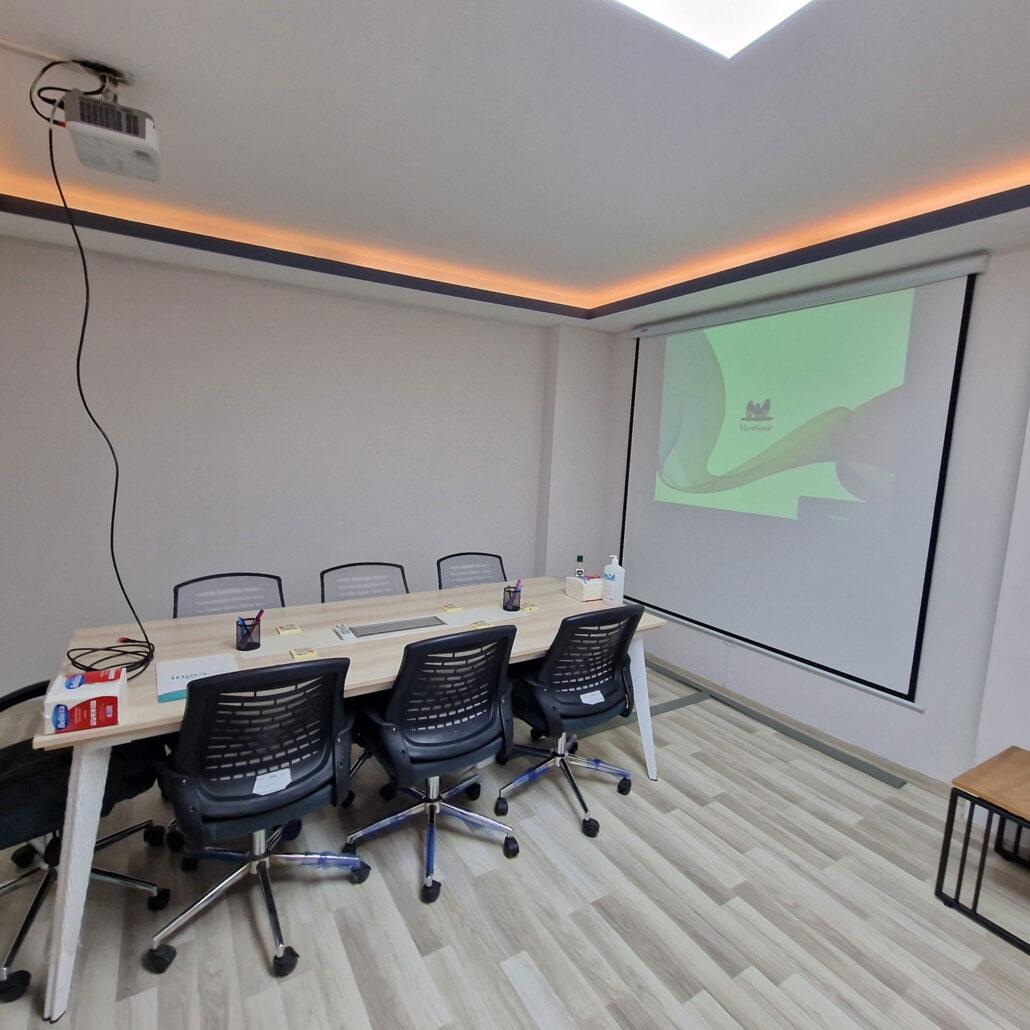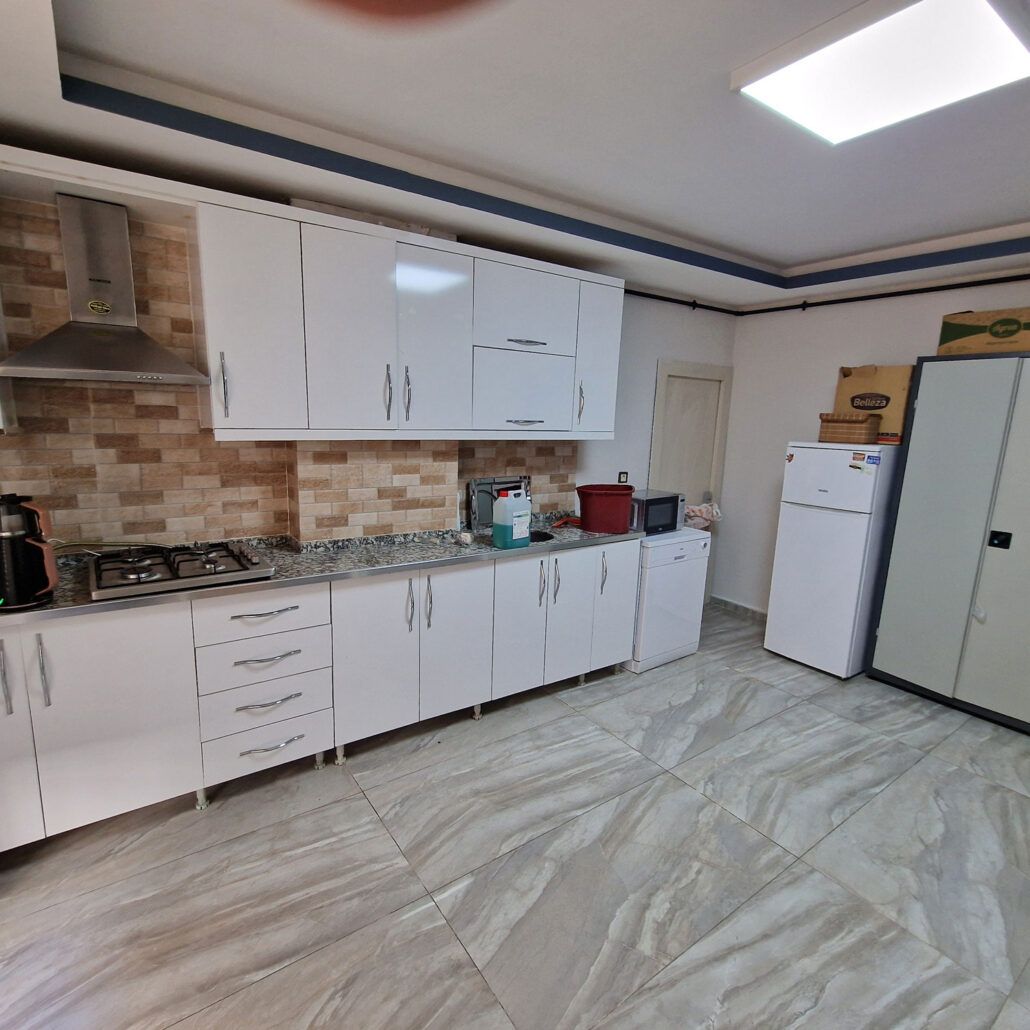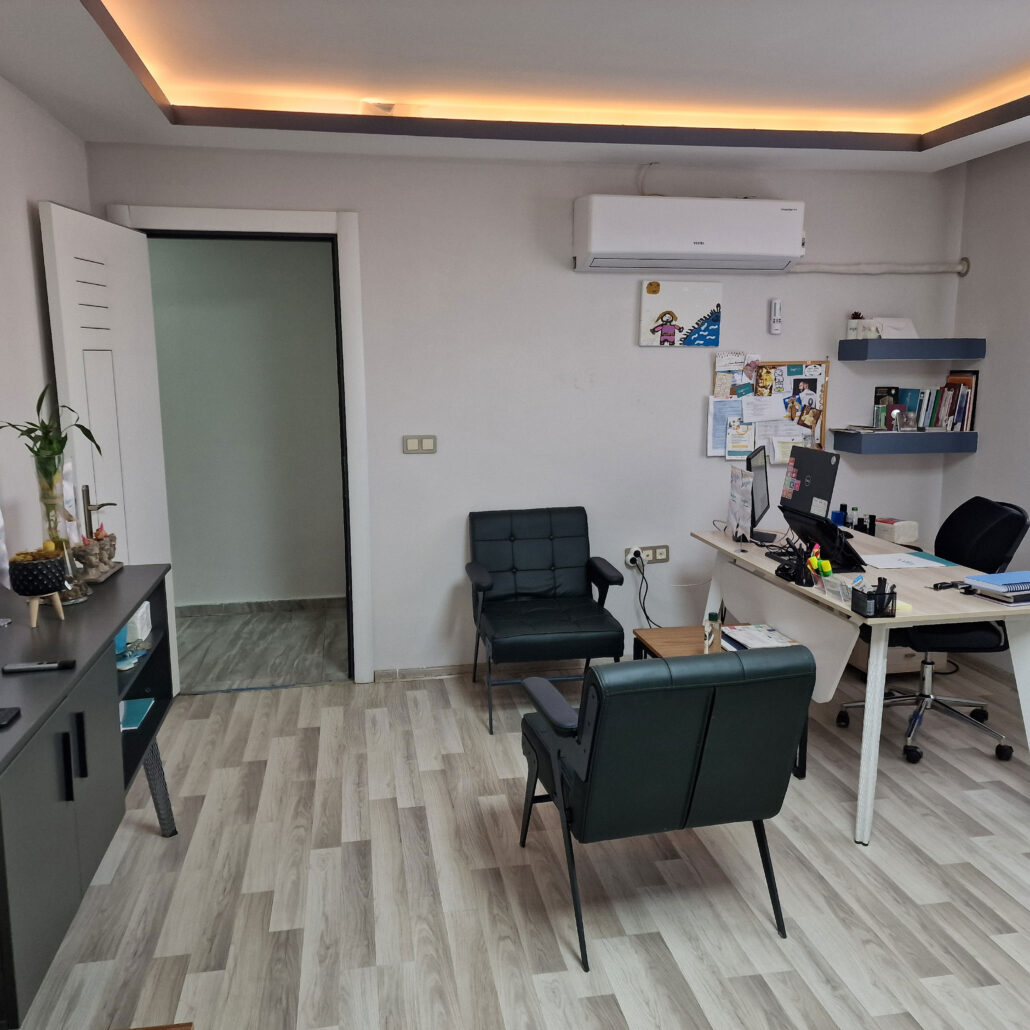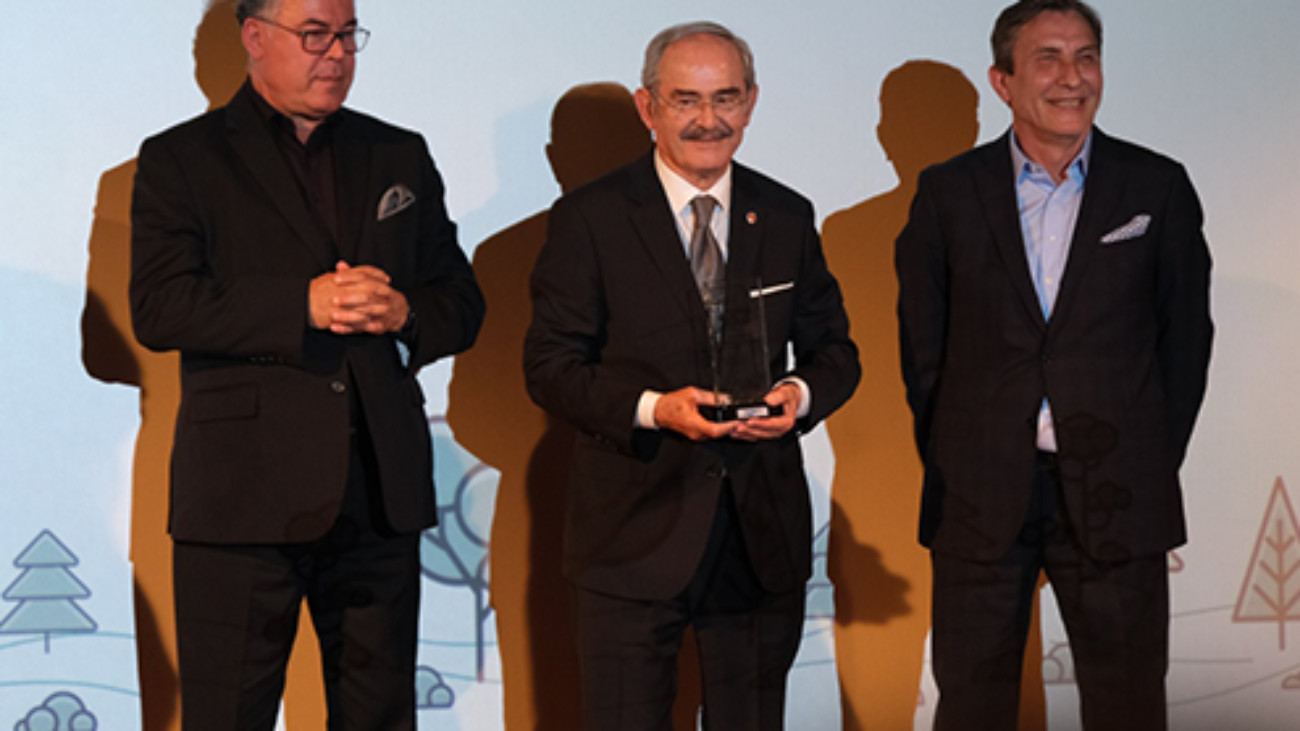At the event hosted by INGEV, Eskişehir Metropolitan Mayor Yılmaz Büyükerşen received the “Sustained Success Human Development Award”…
The İNGEV ActHuman Human Development Awards did not forget those who made a difference in the fight against earthquakes. A special section was reserved for this purpose.
In his opening speech, İNGEV President Vural Çakır explained the reasons for the ActHuman Human Development Award as follows:
“Human development is a fundamental vision that redefines human well-being and links development to this goal. Its theoretical foundations were laid by Nobel economist Amartya Sen. The United Nations Development Program (UNDP) has been working for the last 30 years to develop and spread this concept.
Human well-being is a whole consisting of quality living standards, quality access to services such as health and education, freedom of expression, human agency, and new generation human rights such as environmental rights and digital rights. While human development offers a vision to the world, the Sustainable Development Goals largely link this vision to concrete goals. Thus, a road map for humanity emerges.
However, humanity has not performed well in taking firm steps forward on this roadmap, especially in recent years. On the contrary, we are going through an intertwined complex of uncertainties and precariousness. We are even regressing.
Wars and forced migrations are making our lives more and more difficult. Inequalities are deepening in all areas: individuals, people, countries, workers, sexual identities. In the words of the Secretary General of the United Nations, we are on the highway to climate catastrophe without taking our foot off the gas. At the end of this whole process, we no longer know whether worse days or brighter days await us. But there is one thing we are sure of.
We, the people, will determine which one it will be.
The ActHuman Human Development Awards aim to highlight the people and human behaviors that can lead us to brighter times, and propose them as role models.
We would like to thank each and every one of them for setting an example and guiding us.
We offer our love and respect.”
Awards
ActHuman Sustained Success Special Award
Prof. Dr. Yılmaz Büyükerşen, Mayor of Eskişehir Metropolitan Municipality, who has made a great difference in every task he has undertaken, from RTÜK executive to Anadolu University Rector and Mayor of Eskişehir Metropolitan Municipality,
Who has transformed Eskişehir into an exemplary city for Turkey and the world,
Who has always taken care to embrace and unite the whole society while achieving all these successes and who has displayed an exemplary personality model, was given the Sustained Success Human Development Award.
The award was presented by İNGEV President Vural Çakır and Sabancı University Istanbul Policy Center Director Prof. Dr. Fuat Keyman.
ActHuman Human Development Awards
In the special section for disaster support, Mert Fırat, Haluk Levent and the Turkish Psychologists Association received awards, while 5 names were given awards on behalf of all search and rescue and medical teams who have been working hard to save our citizens in the region since the February 6 earthquake, regardless of which institution they work for.
The Embassy of Greece received an award on behalf of more than 70 countries and 16 international organizations that came to Turkey’s aid after the earthquake and supported search and rescue efforts.
Human Development Awards were presented to Şengül Akçar for her contributions to supporting women’s entrepreneurship and evaluating women’s labor; to Fidan Ataselim and Gülsüm Kav Önal for their efforts in preventing femicides; to Validebağ Volunteers for protecting Validebağ from construction in the name of protecting nature and living life in Turkey; and to Jin Davod, who developed herself and contributed to her community in Turkey, where she had to migrate from Aleppo as a child.
On the evening of May 3rd, ActHuman Human Development Awards were determined by the votes of INGEV Executive Board and Coordination Board members in line with the list of candidates prepared by the secretariat of INGEV.
The list was made up of people whose work on issues within the concept of human development stood out and a special section was reserved for the fight against earthquakes.
At the Event:
- While the whole country prayed for the rescue of those trapped under the rubble, search and rescue teams and paramedics tried to follow every breath, every sound. On behalf of the search and rescue and health teams who pulled thousands of people out of the rubble, healed them and saved their lives, regardless of the organization they worked for, Human Development Awards were presented to Miner İlker Aksakal, Miner Muzaffer Meme, Firefighter Cuma Yarar, Doctor Fatma Handemir and Nurse Elif Felek. TÜSİAD President Orhan Turan presented the awards.
- Pınar Türenç, President of the Press Council, presented the award to Cem Şafak Çukur on behalf of the Turkish Psychologists Association, which has provided active support with 1,500 volunteers in and outside the earthquake zone since the first days of the earthquake, helping over ten thousand children, adolescents and adults to cope with the devastation.
- In the face of the great earthquake disaster, the international community showed great solidarity, especially in search and rescue operations, and Turkey received support from 76 countries and 16 international organizations. TÜRKONFED President Süleyman Sönmez presented an award to the Embassy of Greece representing the solidarity shown by the international community to Turkey in the fight against the disaster.
- Mert Fırat, an artist and civil society leader who has been demonstrating his social contributions through artist solidarity, cooperatives and UNDP Goodwill Ambassadorship since the first day in the earthquake zone with İhtiyaç Haritası, was presented his award by Vural Çakır, President of INGEV, together with Gülseren Onanç, President of SES Association.
- Haluk Levent, Founder and Director of the Ahbap Association, was also awarded on behalf of all the supporting non-governmental organizations for his leadership in the fight against disaster, which has made a great contribution to the work in the earthquake region since the first day through the Ahbap Association he founded. Haluk Levent published a video message for the event.
- KEDV Founder and Director Şengül Akçar was presented with the award by KAGIDER President Emine Erdem for her pioneering work in supporting women’s entrepreneurship and evaluating women’s labor.
- While 381 women were killed last year and 4,086 women were killed in the last 15 years, the Istanbul Convention was abandoned in 2022 and Law No. 6284 became one of the most important items of agenda discussed in Turkey Celal Korkut, President of TÜSES, presented awards to Gülsüm Kav Önal and Fidan Ataselim for their great efforts on every platform to prevent femicides in this difficult environment.
- While our country, like the world, is experiencing all the effects of climate change, the earthquake disaster once again showed how vital the relationship between construction and nature is. On behalf of all local communities struggling to protect nature and living life all over our country, Validebağ Volunteers who protected Validebağ from construction were presented an award by Özlem Katısöz, CAN Europe (European Climate Action Network) Turkey Manager.
- The Humanitarian Development Award was presented to Jın Davod, who improved herself in Turkey, where she took refuge as a child under great difficulty while 4 million individuals fleeing the Syrian civil war were trying to build a life for themselves under many financial and psychological difficulties, and contributed to the society she was in by helping those around her and those in need. Jın received the award from Vural Çakır on behalf of all immigrants
